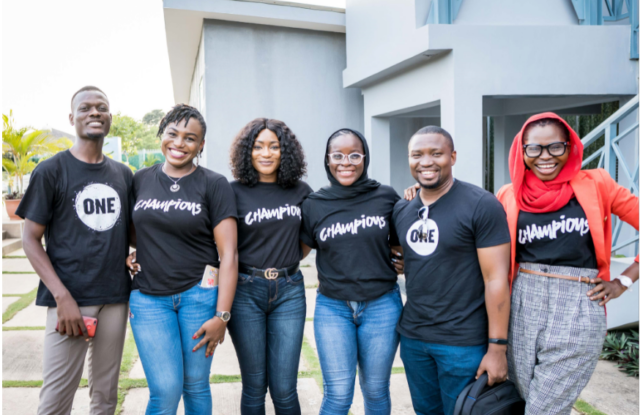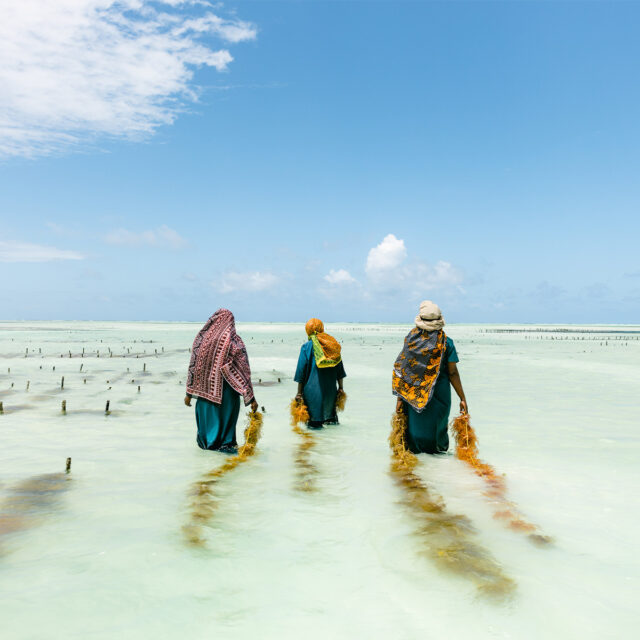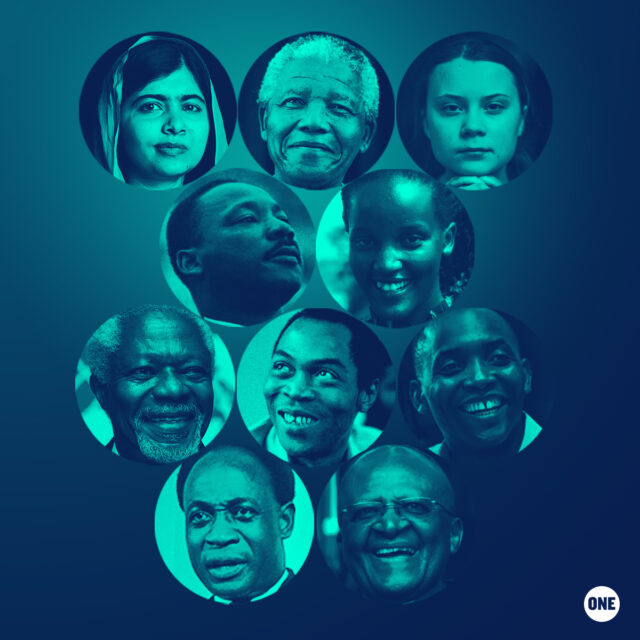“UBUNTU,” is a word from the Xhosa language that loosely translates as “I am because you are.” It’s a word that expresses the solidarity of all people and the responsibility of each individual for an equal, inclusive, and respectful lifetime together. A word made famous by Nelson Mandela who, as an anti-apartheid revolutionary, the first black president of South Africa, and a tireless philanthropist, is still today a symbol of black resistance movements worldwide.
In honor of Nelson Mandela Day, which was on 18 July, ONE activists shared their favourite Mandela quotes on social media. From Nigeria to Italy to Canada, Mandela’s words continue to touch and inspire young people around the world in their activism today. Here are five of the most frequently shared quotes and some more details on Mandela’s legacy.
“It always seems impossible until it’s done.”
Born as Rolihlahla Mandela on 18 July 1918 in Mvezo, a village in eastern South Africa, Mandela grew up as a member of the royal family at the Thembu court. He was given the name Nelson during a Christian naming on his first day at school. He grew up as a devout Christian, influenced by Xhosa culture and traditions, in times of increasingly harsh segregation policies in South Africa.
“Education is the most powerful weapon which you can use to change the world.“
After graduating from school, Mandela took a detour to study at Fort Hare University. While there, he was suspended after being involved in a student protest.
To escape a forced marriage, Mandela fled to Johannesburg. There he found a job as a legal clerk and continued his studies. He was the only black student to study law at the University of the Witwatersrand, where he became politicised due to racial discrimination and joined the ANC (African National Congress) party in 1944 alongside Oliver Tambo and Walter Sisulu.
“As long as poverty, injustice, [and] gross inequality persist in our world, none of us can truly rest.”
In 1948, the National Party government passed apartheid laws. These laid the final stone of the institutionalised and legalised segregation policy and implemented the discrimination policies of the openly racist government. Along with his political colleagues, Mandela fought against apartheid and for all those who were affected by systematic discrimination and were oppressed. In 1952, he started the Defiance Campaign, a series of peaceful protests by people of color, who demanded equal rights for all South Africans and whose protest was violently suppressed by order of the National Party. For his role in the Defiance Campaign, Mandela, along with other activists, was sentenced to a nine month suspended sentence.
“Racism must be opposed by all means that humanity has at its disposal.”
Over the course of the next few years, Mandela moved on to become a lawyer for black South Africans in particular, in addition to his political work. After the political situation worsened and the ANC was banned by the government, Mandela became co-founder of the MK, a militant branch of the ANC that planned and held protests against the government.
In 1962, Mandela was arrested again and sentenced to life imprisonment on Robben Island during the Rivonia Trial in 1962. During his imprisonment, demonstrations and riots raged worldwide demanding Mandela’s release. After 27 years, the South African government bowed to global pressure and released Mandela on 11 February 1990. This coincides with the reintroduction of opposition parties such as the ANC and marked the beginning of the gradual abolition of the apartheid regime over the next few years.
“Sometimes it falls upon a generation to be great.You can be that generation.”
For his decades of political resistance, Mandela was awarded the Nobel Peace Prize in 1993. On 27 April 1994, he was allowed to vote for the first time at the age of 47 in the first public election. The ANC received the majority of the votes and Nelson Mandela became the first black and democratically elected president of South Africa. He founded the Truth and Reconciliation Commission to investigate the human rights violations committed under apartheid and enacted national programmes to reform the government itself, the social system, and housing and property conditions.
In 1999, after only one term in office, Mandela resigned as planned. He went on to spend the rest of his life as an activist, particularly in the fight against AIDS, and remained involved as a philanthropist until his death in 2013.
Today Mandela serves as a symbol of resistance and source of inspiration, and is an example of how a single person can change the world. We’re delighted that ONE activists around the world have been using social media to remind people of Mandela’s legacy and to take his actions and words as a role model to heart. After all, “It is in your hands to make our world a better one for all.”
For more information on Nelson Mandela’s legacy, please refer to the Nelson Mandela Foundation, which continues Mandela’s work. For more details about his life, we recommend Mandela’s biography “Long Walk to Freedom” and the accompanying documentation.
Would you like to learn more about activism and socio-political education work, or even become part of the movement?
Learn more about ONE’s youth ambassador program.



